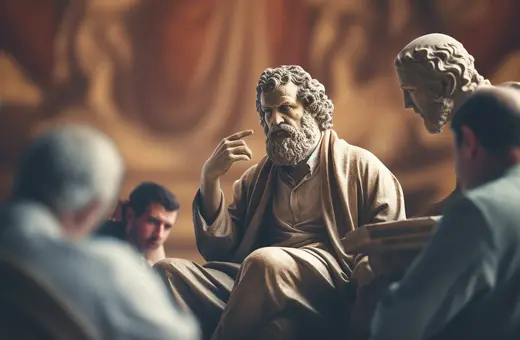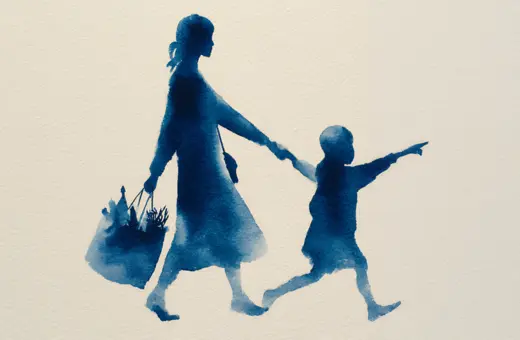Throughout the history of philosophy there has been a tension between the valuable introspection afforded by solitude and the intrinsic need to understand ourselves in relation to others. In the phenomenological tradition of Edmund Husserl and Martin Heidegger we find a vivid picture of man as a being meditatively alone but fundamentally social.
It is often thought that philosophers favor living alone, in isolation, devoting themselves to quiet contemplation. There is the standard image of the guru or sadhu living in a cave. And this really happens. A young British woman, Tenzin Palmo (formerly Diana Perry), converted to Buddhism in her teenage years, travelled to India to study at the age of 20, and then lived for some 12 years on her own in a tiny cave in the high Himalayas in Northern India. She lived alone in great hardship, but claimed she was never lonely – “not for one minute” (MacKenzie 1999, 87). Living alone in such isolation is an almost impossible ideal; and, indeed, she depended on others for regular deliveries of food and other necessities.
The Christian monastic system offers further examples of these extreme retreats. Skellig Michael rock off the West Coast of Ireland (made famous recently as a location in Star Wars: The Last Jedi) contains the stone huts of an early monastic settlement where monks lived in great deprivation and hardship in the eighth and ninth centuries CE, observing very strict, severe rules.
To philosophize is to be in dialogue with others, even if one is in search of oneself, as Socrates says.
The classical Greek philosophical tradition also has examples of such isolation. For example, Diogenes of Cinope, the Cynic (c.404-323 BC), lived rough, spurning all comforts, and sometimes sleeping in a large storage jar or urn (pithos). He left no writings but is commemorated in Diogenes Laertius’ Lives of Eminent Philosophers. He was critical of Plato and often disrupted his seminars.
In fact, however, the main Greek philosophical tradition was more urbane and cosmopolitan, centered around Athens. Socrates was a city dweller, frequenting the marketplace (agora), surely the busiest spot in Athens. Socrates wanted to live and discourse with others, but in order to learn about himself. In Plato’s dialogue Phaedrus, Socrates and Phaedrus are going for a walk outside of the walls of the city and Socrates says to Phaedrus: “I am a lover of knowledge, and the men who dwell in the city are my teachers, and not the trees or the country. Though I do indeed believe that you have found a spell with which to draw me out of the city into the country, like a hungry cow before whom a bough or a bunch of fruit is waved. For only hold up before me in like manner a book, and you may lead me all round Attica, and over the wide world” (Phaedrus 230d-e). Generally speaking Socrates, Plato and Aristotle emphasized that human beings were political animals; humans flourish in the polis, in the well-organized political community. To philosophize is to be in dialogue with others, even if one is in search of oneself, as Socrates says.



















Join the conversation